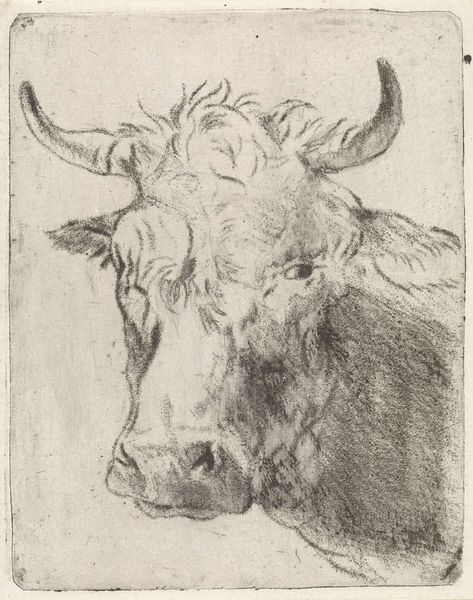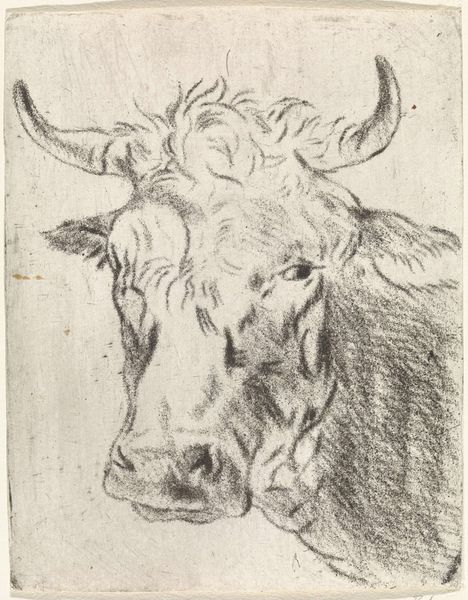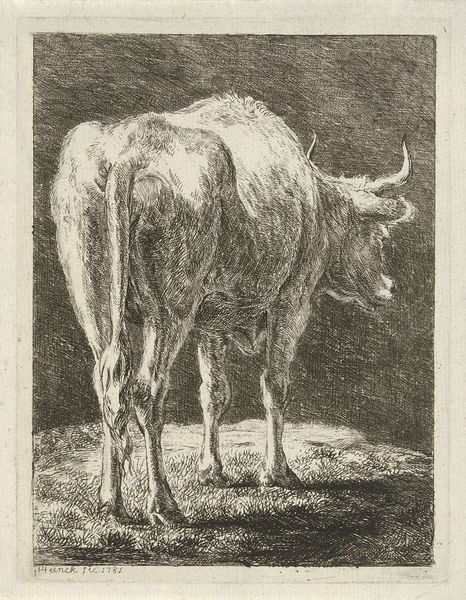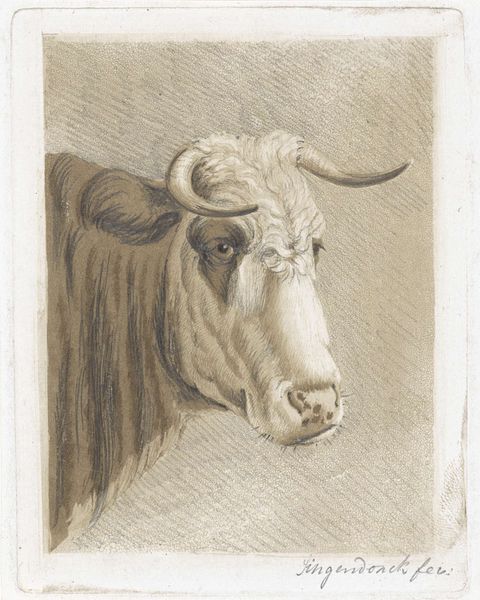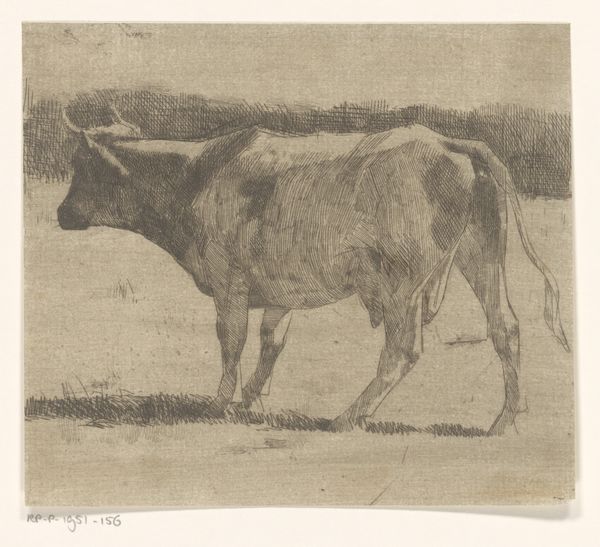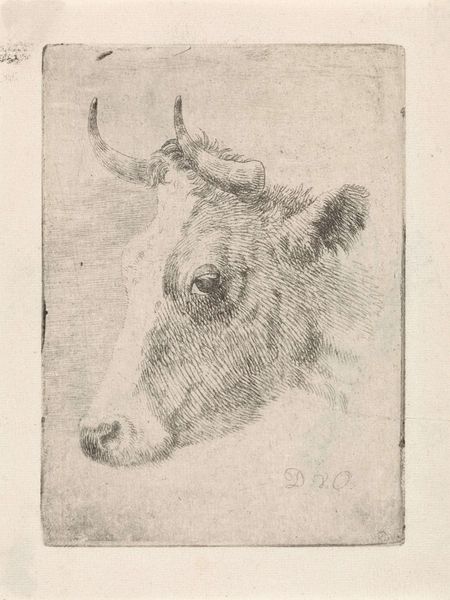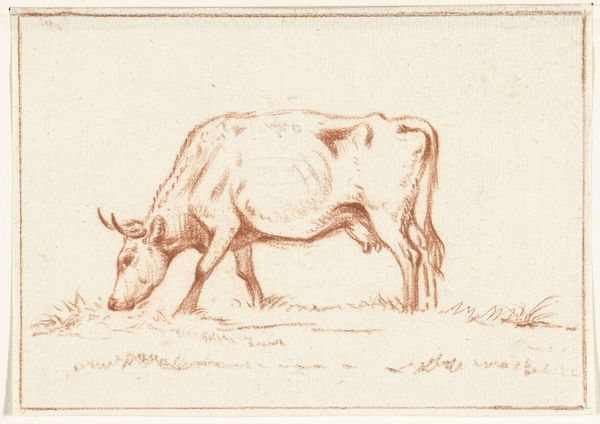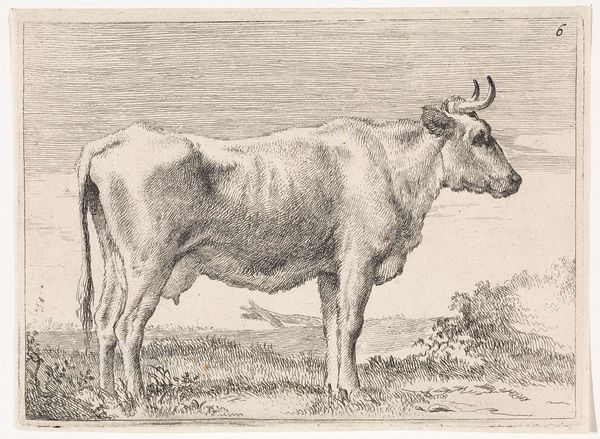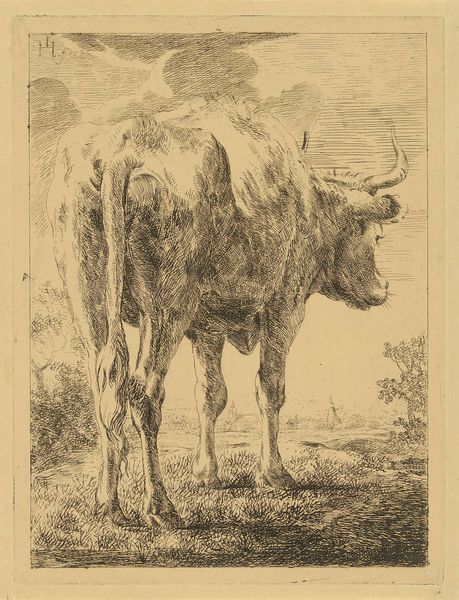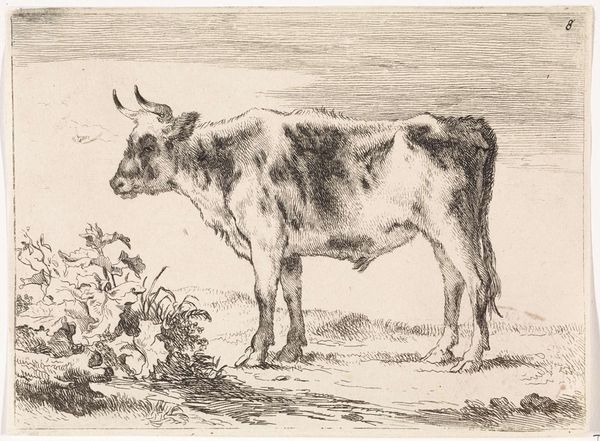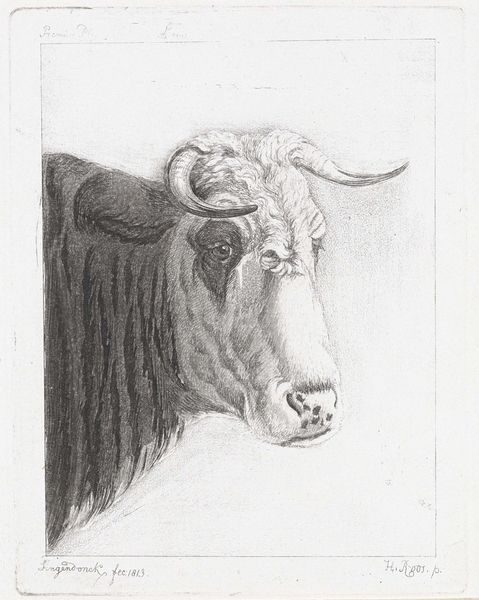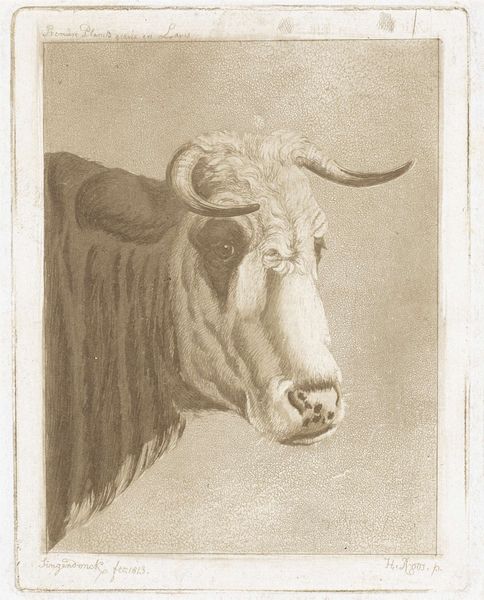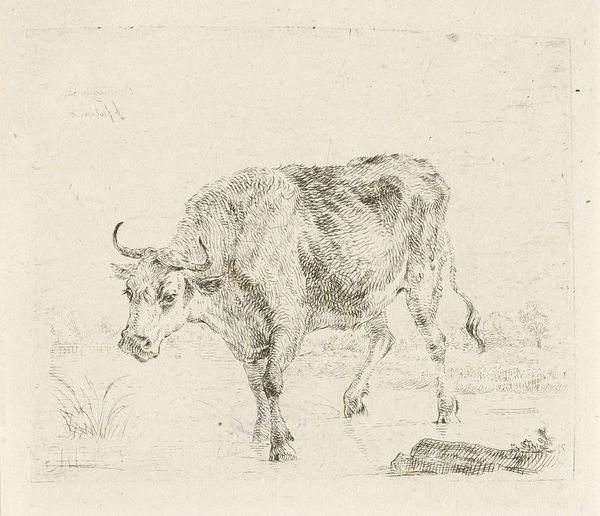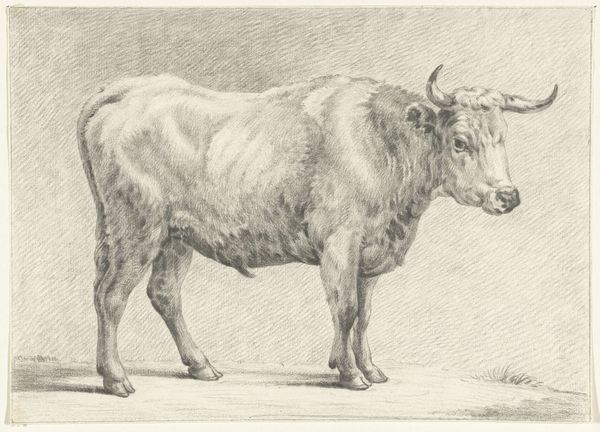
print, etching
# print
#
etching
#
landscape
#
genre-painting
Dimensions: height 178 mm, width 135 mm
Copyright: Rijks Museum: Open Domain
Editor: Here we have Jabes Heenck's "Cow in a Landscape," an etching dating to around 1767-1781. It’s interesting, almost feels like the artist is focusing more on the raw texture of the cow rather than a perfect representation. How do you interpret this work, especially considering it’s an etching? Curator: This etching allows us to examine Heenck's labor, both artistic and in a sense, mirroring agricultural labor. Look at the density of the lines used to depict the cow’s form. It's a meticulous, almost industrial process when you consider how many prints could be made from this single plate, and disseminated amongst a wide audience. Think about the economic and social context—who would be consuming these images and why? Editor: That’s a really interesting point about the labor involved in printmaking being reflective of agricultural labor. Did the availability of prints like this change how people viewed or valued the actual, physical labor of farming? Curator: Absolutely. Etchings made art more accessible to a broader segment of society. This changes the landscape of art consumption and alters our perceptions of the art world’s accessibility, which traditionally was defined by expensive unique objects created by trained and accredited master craftsmen, and possessed by elites. Now, consider the paper itself; how its production relates to larger economies of material consumption and its role in disseminating information and images. Editor: So, the materiality and production are key to understanding its impact. That’s really made me rethink it! Curator: Exactly. It is through that lens that we appreciate the real impact this cow has made. Editor: Thank you. That approach is very insightful and connects the piece to wider contexts.
Comments
No comments
Be the first to comment and join the conversation on the ultimate creative platform.
